Leesburg’s Scouts BSA Girl Troop 998 welcomed their new Scouts to the Troop recently with a weekend camp out at Burke Lake in Fairfax County. Cooking, fire-building, knife safety and first aid were all on the agenda, plus some down time fishing on the lake.
But then, in the next campsite, Pack 1865 arrived for a Saturday night camp out and ceremony to advance their Lion Den up to Tigers. After T998G’s youth leaders reached out to the Pack 1865 leaders, they were invited to join the ceremony and welcome the new Cubs (both boys and girls) to their new status as Tigers. The Scouts then invited the Pack to join their evening campfire, participate in a solemn flag retirement ceremony, and complete the evening with traditional Scout Vespers.
Scouts BSA Girl Troop 998 is chartered by Leesburg United Methodist Church, but during COVID is currently meeting on Monday nights, outside at adult leaders’ homes in Leesburg and Ashburn. If you’d like to visit and learn more, please contact Scoutmaster Denise Pender at 703-727-1806 or smpender998g@gmail.com.

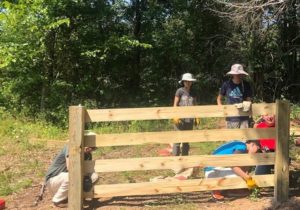 The task seemed daunting at first. Breaking the earth for my Eagle Scout project was no easy feat. I wanted to construct the front fence of the start of a new equestrian park for a local non-profit horse equine-assisted therapy organization. Driving out to the property, parking on the side of the road, I tried to peer in to see what I was working with. I shook my head in disbelief; from the road, I could not walk even ten feet into the property. It was overgrown, trees lining the front of the property, and bugs swarming my every step. How was I supposed to build a fence where I couldn’t even see the ground? However, I chose to help the organization; helping the therapy center made me feel meaning in my work, and the knowledge that less fortunate children could benefit from it only convinced me more to take this project on.
The task seemed daunting at first. Breaking the earth for my Eagle Scout project was no easy feat. I wanted to construct the front fence of the start of a new equestrian park for a local non-profit horse equine-assisted therapy organization. Driving out to the property, parking on the side of the road, I tried to peer in to see what I was working with. I shook my head in disbelief; from the road, I could not walk even ten feet into the property. It was overgrown, trees lining the front of the property, and bugs swarming my every step. How was I supposed to build a fence where I couldn’t even see the ground? However, I chose to help the organization; helping the therapy center made me feel meaning in my work, and the knowledge that less fortunate children could benefit from it only convinced me more to take this project on.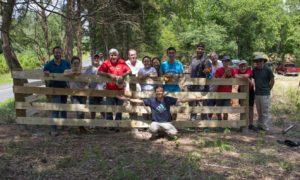 On the day of the project, after all the preparation, laying out the construction flags, measuring the fence distance, and renting equipment, I thought a fence cannot be that difficult to construct right? I was wrong. Off the bat, I faced even more obstacles. Drilling holes in the ground proved to be a pain in the ass, brittle, rocky earth testing my paper plan. After all the work I put in, I was not going to be stopped by a faulty power auger. My perfect plan was put to a halt in its tracks. As I pondered the possibility of working well into the night, it dawned on me that I should implement Plan B, one that just sprung into my mind. Keeping the workers focused and not idle became a new priority as the other parts of my old plan finished. I diverted my resources to help drill holes. Through the beating sun, we finally managed to finish the project after seven hours of hard labor, in front of me was a completed 300-foot fence. I would have never thought I would transform the wilderness into an orderly, pretty fence, a trailblazer for the equestrian park.
On the day of the project, after all the preparation, laying out the construction flags, measuring the fence distance, and renting equipment, I thought a fence cannot be that difficult to construct right? I was wrong. Off the bat, I faced even more obstacles. Drilling holes in the ground proved to be a pain in the ass, brittle, rocky earth testing my paper plan. After all the work I put in, I was not going to be stopped by a faulty power auger. My perfect plan was put to a halt in its tracks. As I pondered the possibility of working well into the night, it dawned on me that I should implement Plan B, one that just sprung into my mind. Keeping the workers focused and not idle became a new priority as the other parts of my old plan finished. I diverted my resources to help drill holes. Through the beating sun, we finally managed to finish the project after seven hours of hard labor, in front of me was a completed 300-foot fence. I would have never thought I would transform the wilderness into an orderly, pretty fence, a trailblazer for the equestrian park.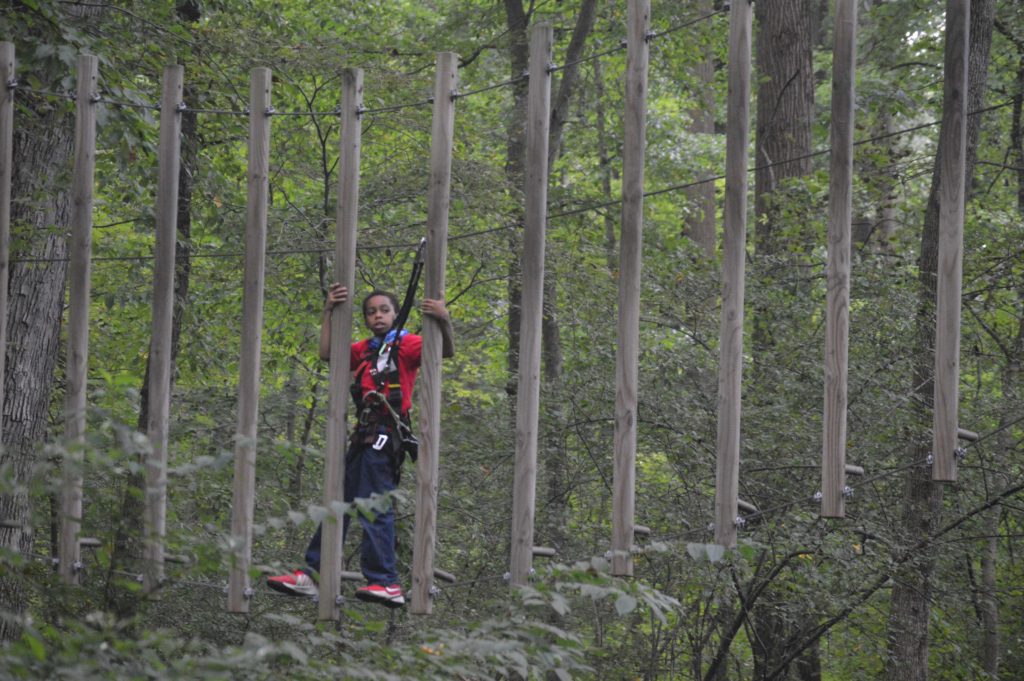
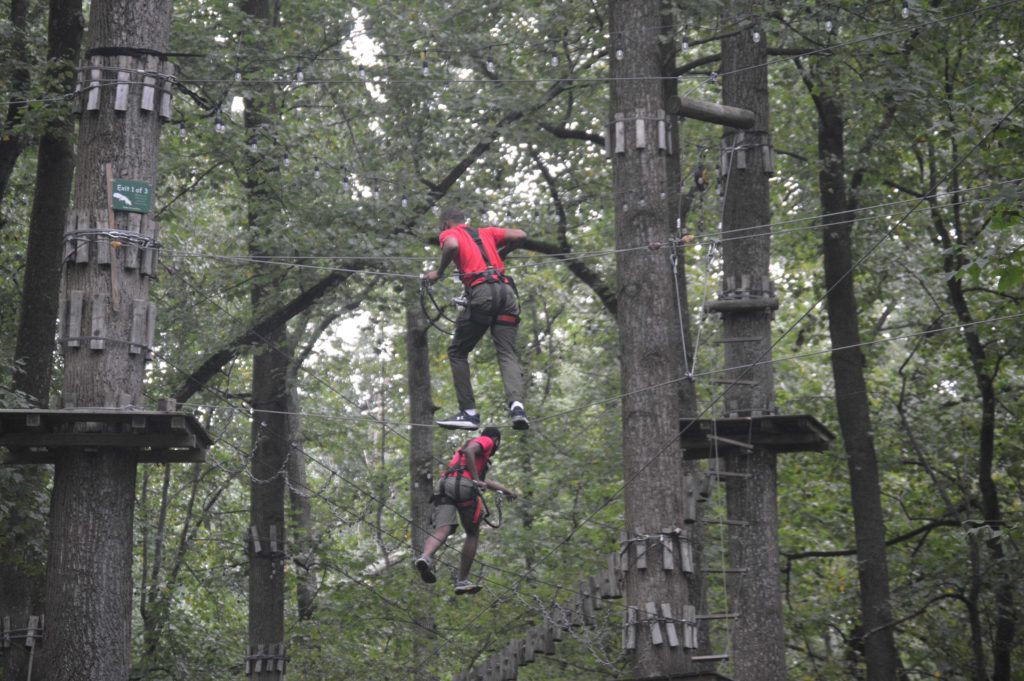
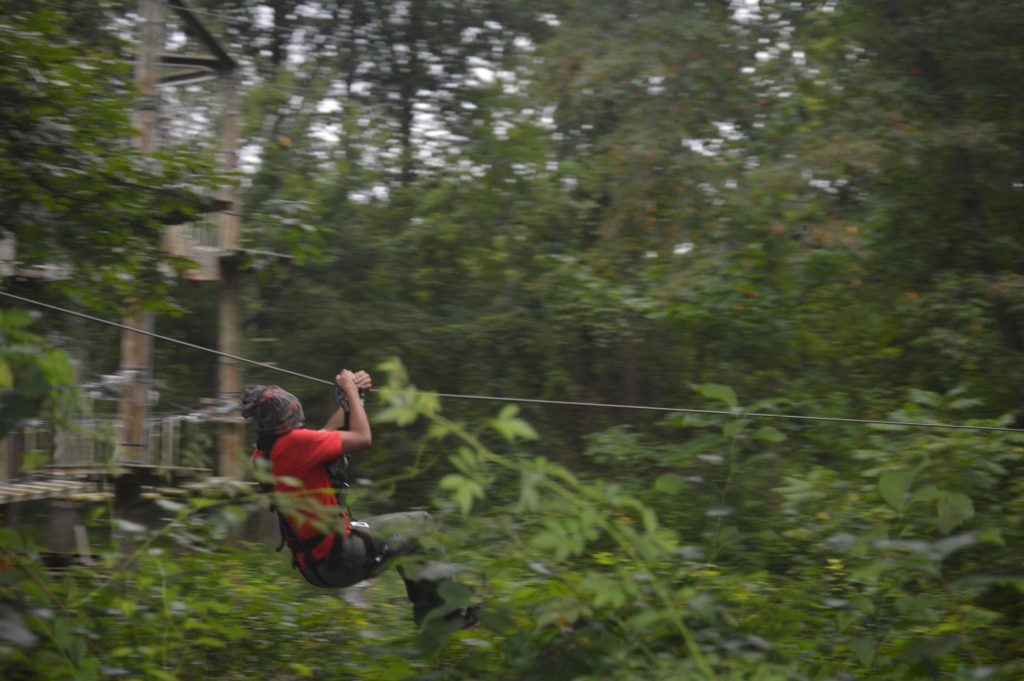
 Afghanistan. A country torn for decades by conflict, where thoughts of peace seem to drift ever out of reach. Yet, in the eyes of PARSA Afghan Girl Scout Troop 2 and Afghan Boy Scout Troop 36, hope of peace is alive. Hope is thriving in fact, as their passion for peace drives their unwavering energy to provide a wide range of social outreach and service projects in their communities.
Afghanistan. A country torn for decades by conflict, where thoughts of peace seem to drift ever out of reach. Yet, in the eyes of PARSA Afghan Girl Scout Troop 2 and Afghan Boy Scout Troop 36, hope of peace is alive. Hope is thriving in fact, as their passion for peace drives their unwavering energy to provide a wide range of social outreach and service projects in their communities. Carter H, the Senior Patrol Leader of Troop 1345B shared a vision of peace where citizens “rely on each other and support each other through the good and the bad things.” The Afghanistan Scouts shared their vision of a peace, where everyone comes together and assists in shaping and rebuilding their country in a climate of mutual respect. The Afghanistan Scouts routinely take on service projects to provide food and other necessities to those in their community that need assistance.
Carter H, the Senior Patrol Leader of Troop 1345B shared a vision of peace where citizens “rely on each other and support each other through the good and the bad things.” The Afghanistan Scouts shared their vision of a peace, where everyone comes together and assists in shaping and rebuilding their country in a climate of mutual respect. The Afghanistan Scouts routinely take on service projects to provide food and other necessities to those in their community that need assistance.